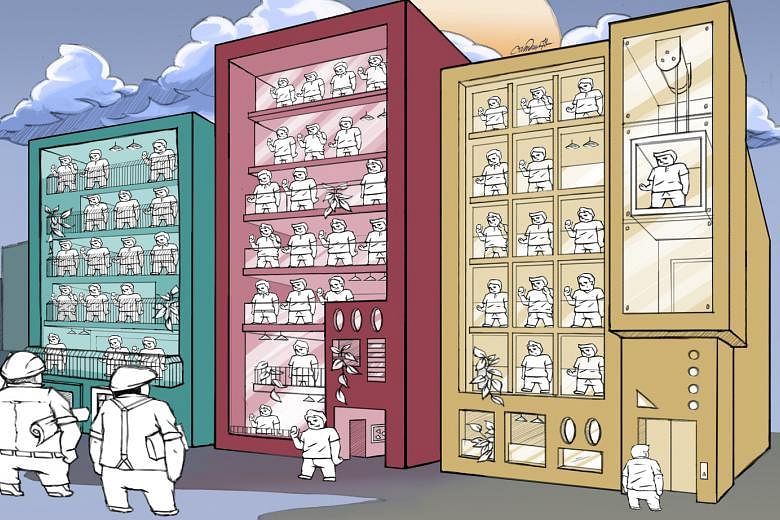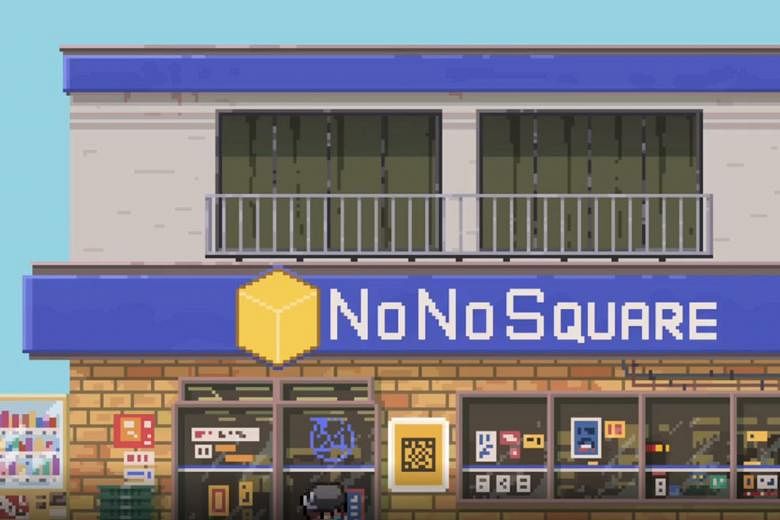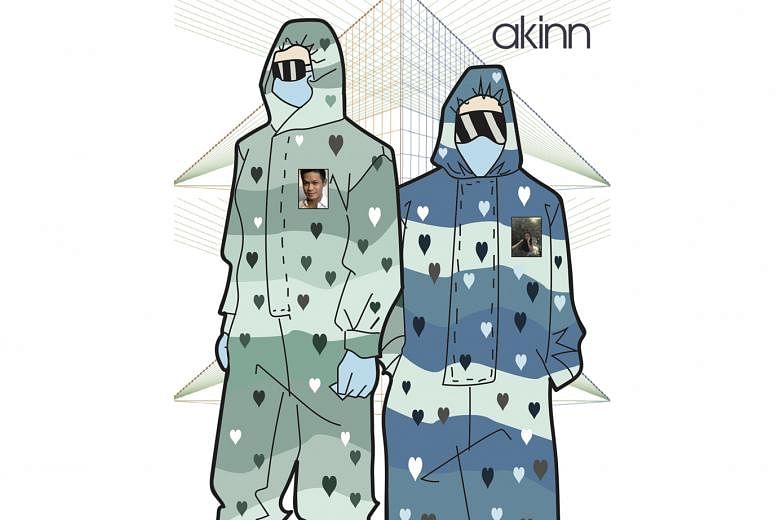Pick up groceries while maintaining social distance with other customers. And do not forget to check in with SafeEntry.
Who would have thought that real-life experiences would make for an old-school arcade-style video game?
The game in question - No No Square, designed by Start Something Studios - is one of the unexpected works that are part of the National Museum of Singapore's (NMS) #NEVERBEFORESG exhibition, which launched online on Monday.
The digital show, which brings together 140 works by 91 creatives, is NMS' contribution to the National Gallery Singapore and Singapore Art Museum's Proposals For Novel Ways Of Being initiative.
The initiative brings together 12 art institutions and independent art spaces and collectives to curate responses to the ongoing coronavirus pandemic.
#NEVERBEFORESG is guest-curated by designer Yang De Rong, 55, who jokes that he had never made so many cold calls before.
The wholly digital show features works from well-known names such as singer-composer Dick Lee, who contributed an intimate series of family watercolour sketches, to less familiar practitioners.
Yang says it was a deliberate decision to steer the show away from "arty" artists. "When we first explored the DNA of the show, I thought, 'the National Museum is a people's museum, it's not a serious art thing'. So why don't we explore the state of our lives rather than the state of the arts during the pandemic?"
The resulting works, presented in nine chapters, offer a diverse range of views from creatives in different fields who respond in various ways to the challenges of producing work during the circuit breaker.
Photographer and Instagrammer Ivan Kuek, for example, says he hates jogging but would run during the circuit breaker: "It was my only form of exercise and a chance to get out for some fresh air."
He shot some of his photographs for Feeling Blue, his series for the project, while out on his runs.
Singer Lee says he was decluttering his belongings during the pandemic and unearthed boxes of family photographs which made him miss his late parents and sister: "The loneliness of this whole pandemic brought on my longing to see my family.
"I have three brothers. One of them was in New York. He had Covid, he was stuck at home and we were so worried."
This longing inspired him to draw again - "I studied fashion design, but I loved illustrating my designs more than sewing the clothes" - and a series of family sketches was born.
-
VIEW IT / #NEVERBEFORESG
-
WHERE: neverbefore.sg
ADMISSION: Free
Other contributors drew inspiration from more practical issues. Architects Brandon Lim and Kenneth Koh brought their technical expertise to bear on a topic which has caught mainstream attention: migrant worker dormitories.
Koh says his work was sparked by the fundamental question: "What is truly a habitable space?"
Rather than offer straightforward building solutions, the two chose to draw thought-provoking images.
Koh's work depicts an M. C. Escher-like construction of topsy-turvy living spaces, while Lim draws parallels between the anonymous stacks of dormitories and the ubiquitous vending machines.
Lim says that the issue is serious, but "the art style is very 'cartoony', it's meant to be playful".
Lightness is also a tone fashion designer Wykidd Song aimed for when redesigning a PPE (personal protective equipment) outfit.
He says medical workers in PPE can be a scary sight for patients, but he thought about easing the tension with a surface print for the outfits.
Song's versions of the outfits are printed with little hearts. Each PPE outfit comes with a pocket where workers can slide photographs of themselves, so patients can see what they look like. He says: "It may not alleviate the pain of the patients, but it can lighten the stress."
Yang adds jokingly that they should make all the PPE designs and display them on a hospital tour.
His enthusiasm about the project is palpable, though he admits that he "got carried away". His original concept included more than nine chapters, and he thought of dedicating one to cooking and baking, which seemed to be a hot pursuit during the circuit breaker.
Since the digital domain is endless, he muses, perhaps this site can keep going. "This is a very inclusive project, so maybe we should just keep it open and invite people to submit. We demystify the whole perception that you have to know art to see art, or you have to know art in order to create art."




